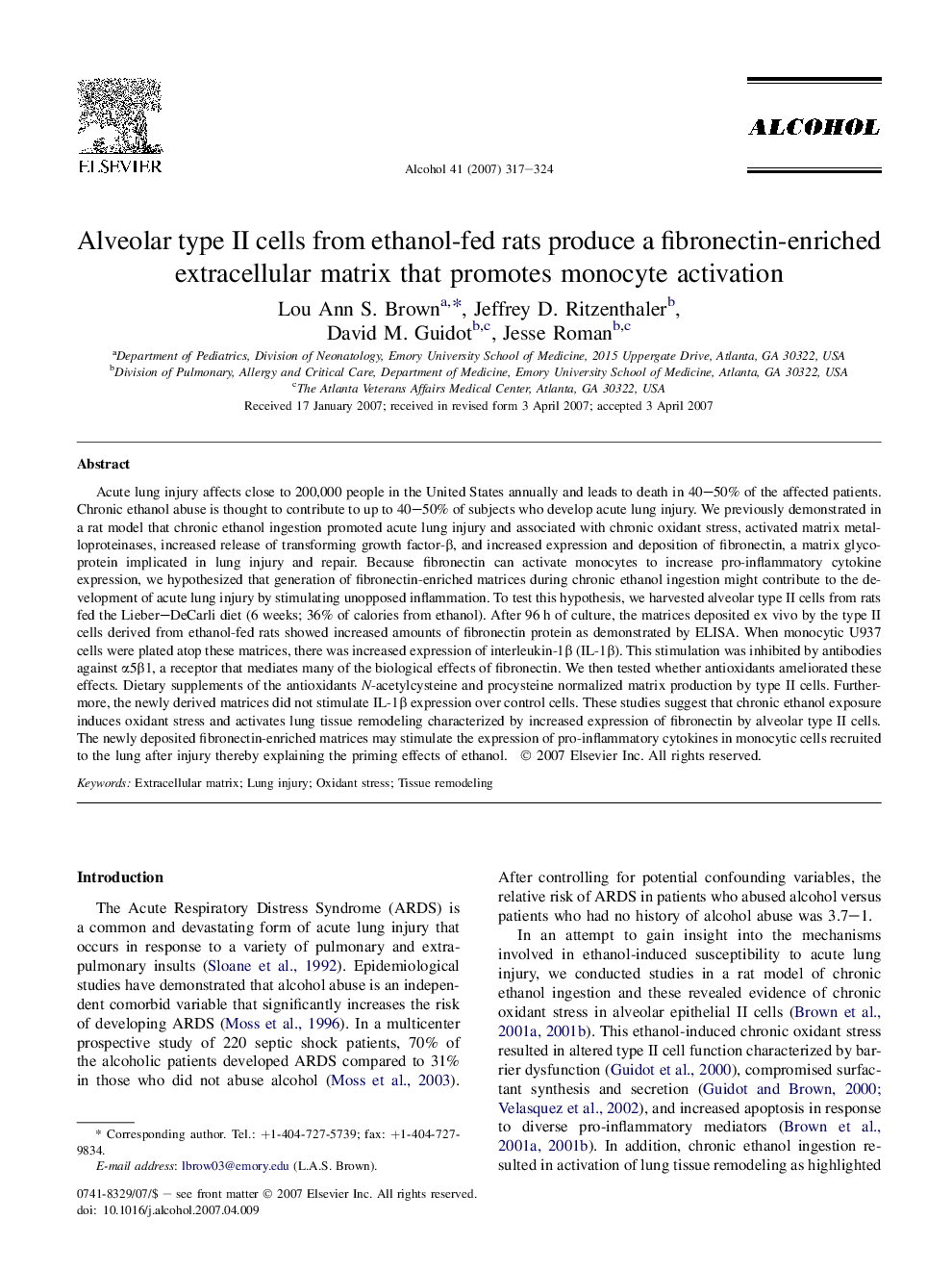| Article ID | Journal | Published Year | Pages | File Type |
|---|---|---|---|---|
| 1067971 | Alcohol | 2007 | 8 Pages |
Acute lung injury affects close to 200,000 people in the United States annually and leads to death in 40–50% of the affected patients. Chronic ethanol abuse is thought to contribute to up to 40–50% of subjects who develop acute lung injury. We previously demonstrated in a rat model that chronic ethanol ingestion promoted acute lung injury and associated with chronic oxidant stress, activated matrix metalloproteinases, increased release of transforming growth factor-β, and increased expression and deposition of fibronectin, a matrix glycoprotein implicated in lung injury and repair. Because fibronectin can activate monocytes to increase pro-inflammatory cytokine expression, we hypothesized that generation of fibronectin-enriched matrices during chronic ethanol ingestion might contribute to the development of acute lung injury by stimulating unopposed inflammation. To test this hypothesis, we harvested alveolar type II cells from rats fed the Lieber–DeCarli diet (6 weeks; 36% of calories from ethanol). After 96 h of culture, the matrices deposited ex vivo by the type II cells derived from ethanol-fed rats showed increased amounts of fibronectin protein as demonstrated by ELISA. When monocytic U937 cells were plated atop these matrices, there was increased expression of interleukin-1β (IL-1β). This stimulation was inhibited by antibodies against α5β1, a receptor that mediates many of the biological effects of fibronectin. We then tested whether antioxidants ameliorated these effects. Dietary supplements of the antioxidants N-acetylcysteine and procysteine normalized matrix production by type II cells. Furthermore, the newly derived matrices did not stimulate IL-1β expression over control cells. These studies suggest that chronic ethanol exposure induces oxidant stress and activates lung tissue remodeling characterized by increased expression of fibronectin by alveolar type II cells. The newly deposited fibronectin-enriched matrices may stimulate the expression of pro-inflammatory cytokines in monocytic cells recruited to the lung after injury thereby explaining the priming effects of ethanol.
